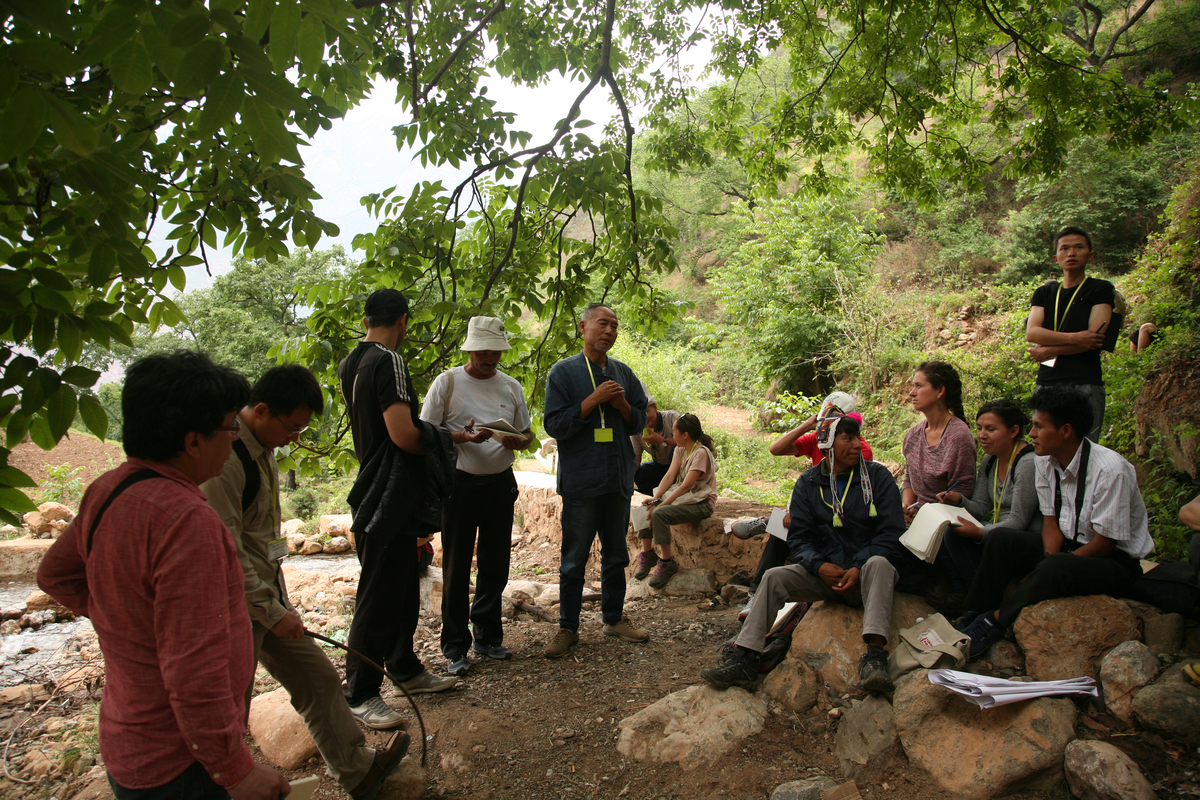

Indigenous and traditional peoples living in mountains are known to sustain important traditional knowledge and a diversity of resilient genetic resources that are adapted to mountain conditions. As an example, mountain farmers have explicitly designed their agricultural systems to protect the soil from erosion, conserve water resources and reduce the risks of disasters triggered by natural hazards which are prevalent in these environments. In terms of variety in genetic resources for instance, farmers in the Andes know as many as 200 different varieties of indigenous potatoes and in the mountains of Nepal, they farm approximately 2000 varieties of rice. In that regard, mountain communities are the custodians of traditional knowledge on how to farm in difficult mountainous conditions and of important reservoirs of agricultural biodiversity. These both elements are key to achieving sustainable development. On the other hand, this traditional knowledge is now being challenged by the rapid changes imposed by climate change which is experienced very disproportionately in mountains. In fact, mountains are highly temperature-sensitive regions compared to surrounding lowlands and their physical characteristics as well as their socio-economic, historical and political background make them extremely sensitive to the impacts of climate change. This rapidly changing environment in mountains has ushered a new wave of solutions that are based on techniques that draw from modern science and technologies. However, it is essential not to lose sight of the traditional knowledge of mountain communities that have kept mountains safe for millennia through various episodes of changes that they have endured. Indeed, the UNFCCC’s Paris Agreement of December 2015 recognises that adaptation action should follow a participatory and fully transparent approach that takes into consideration vulnerable communities and ecosystems, based on traditional, indigenous and local knowledge, as well as science (article 7). This mixed approach to solving Sustainable Mountain Development challenges under the on-going global change is now what is advocated for and many programmes are popping up that harness both traditional knowledge and modern science to solve mountain problems. In this framework, a policy consultation workshop held on 19-20 May 2016 and co-organized by the Centre for Chinese Agricultural Policy (CCAP)/Chinese Academy of Sciences (CAS), UNDP GEF Small Grants Programme (SGP) and others, explored community-led landscape approaches as critical tools for sustainable development, climate adaptation and poverty alleviation. The participants to the Lijiang policy consultation workshop included 40 professionals from various UN agencies, government, research institutes, NGOs and joined 35 community leaders and representatives from different countries around the world. They exchanged lessons and experiences on various indigenous knowledge systems in mountains, ranging from Sacred Natural Sites (SNS) management in Yunnan-China to Biocultural Landscapes Heritage (BLH) systems in Peru and china. This south-south exchange visit between community leaders from Peru and China and the policy consultation process that ensued in Lijiang both confirmed and emphasized the importance of indigenous knowledge systems in adapting to the various environmental changes happening in mountains, and their integration in modern science will really help mountain landscapes keep their major role as pillars of sustainable development. For more information on this workshop and the exchange visit, please read the full report here.
During the celebration of the International Mountain Day at Paris, 11 December, the UN Environment Programme (UNEP) concludes a series of Mountain Adaptation Outlooks. By promoting policies in favour of ecosystem-based adaptation in mountain regions,
To mark World Environment Day 2016, The International Centre for Integrated Mountain Development (ICIMOD) has launched the ICT for Mountain Development Award 2016. This award which is being issued for its third consecutive year recognizes innovations
Countries of the Hindu-Kush-Himalayan region have now started pondering about the creation of the Himalayan council. This idea was discussed during a Knowledge Forum on Climate-Resilient Development jointly organized by the Ministry of Agriculture an
Le 29 Aout, lors d’une conférence de presse, Hon. Mary Kitutu - le Ministre de l’Etat chargé de l’environnement - a exprimé son enthousiasme pour le quatrième forum sur la montagne. Elle a indiqué que le gouvernement de l'Ouganda est optim
In the afternoon of 17th October 2016, the World Mountain Forum 2016 kicked off at Mbale Resort Hotel, in Uganda. The Forum started with a Special Africa Mountain Event where different Sustainable Mountain Development (SMD) actors presented updates o
More than 250 delegates from around the world gathered in Uganda at Mbale Resort Hotel, from 17th to 20th October 2016, for the World Mountain Forum 2016. This forum served as a platform to share information and discuss the challenges and future oppo
In a refreshing side event to the WMF 2016, UNEP and partners presented the preliminary findings of the Waste Management Outlook (WMO) for mountain regions, a publication that will be launched on this year’s World Mountain Day (11 December 2016).
During the closing ceremony of the World Mountain Forum 2016 that was held in Mbale, Uganda on 17-20 October 2016, His Excellence Edward Ssekandi, the Vice-President of Uganda launched the Uganda Sustainable Mountain Development Strategy. The s